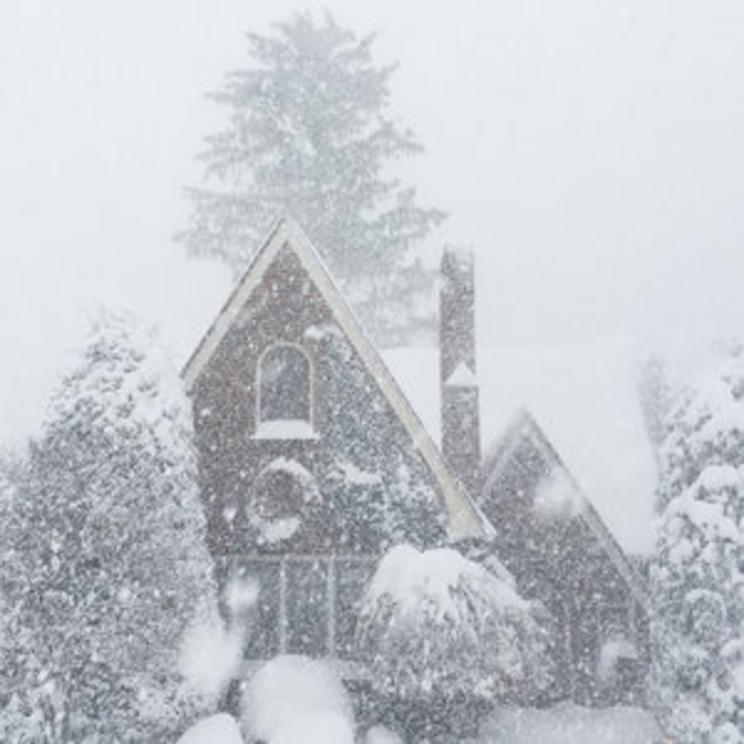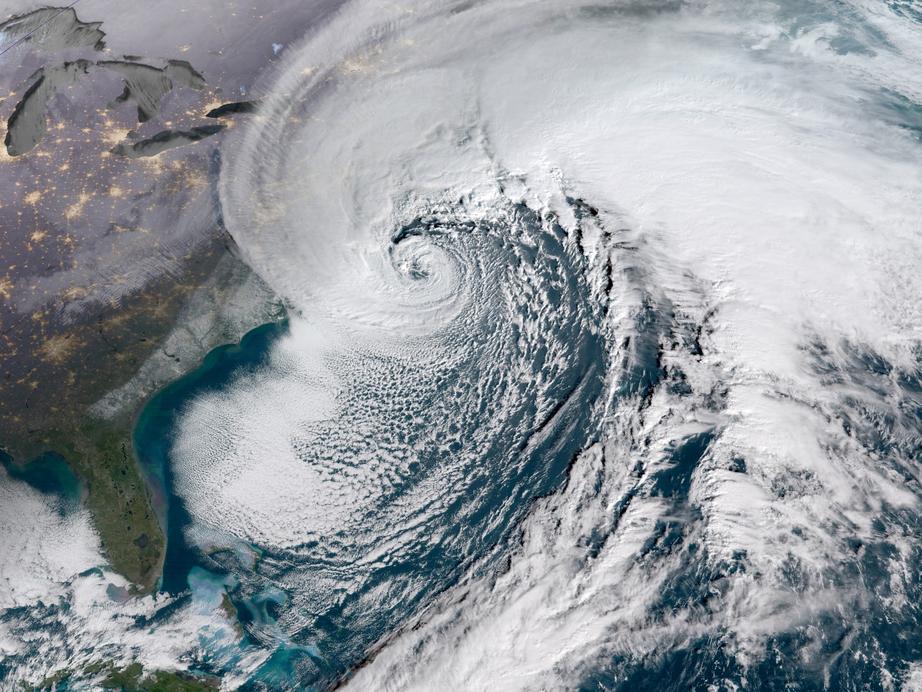Nor'easter: eight killed as storm lashes Atlantic coast of US
Authorities confirmed an eighth death in the nor’easter that swept across the US north-east on Friday. A 37-year-old Massachusetts man was killed on Friday afternoon when a tree fell on his pickup truck.
The Plymouth district attorney’s office said Ryan MacDonald, of Plympton, was found trapped in his truck after a large pine tree landed on the roof. He was pronounced dead at the scene.
MacDonald was the first Massachusetts resident confirmed dead in the storm and the third in New England. Authorities reported two more deaths earlier: a 25-year-old man in Connecticut and a 57-year-old man in Pennsylvania died when trees fell on their cars.

The other five people killed included two children. A man and a six-year-old boy were killed in different parts of Virginia while an 11-year-old boy in New York state and a man in Rhode Island both died. A 77-year-old woman died after being struck by a branch outside her home near Baltimore.
Communities along the north-east coast were braced for more flooding during high tides on Saturday, even as the powerful storm that inundated roads, snapped trees and knocked out power to more than 2 million homes and businesses moved hundreds of miles out to sea.
Areas from Maryland to Maine remained under flood warnings. As Saturday’s midday high tide arrived, heavy surf crashed into the cliffs along Cape Cod Bay in Bourne, Massachusetts, drawing dozens of onlookers to watch churning brown waves take big bites out of the eroding coastline.
“We’ve been here a long time and we’ve never seen it as bad as this,” said Alex Barmashi, who lives in the hard-hit village of Sagamore Beach. Up the coast in Scituate, Becky Smith watched as ocean waters started to fill up a marina parking lot.
“It looks like a war zone,” she said, describing the scene in the coastal town near Boston where powerful waves dumped sand and rubble on roads and winds uprooted massive trees. “It’s a lot of debris, big rocks and pieces of wood littering the streets.”
Residents in other coastal areas bailed out basements and surveyed the damage while waiting for power to be restored, a process that power companies warned could take days in parts.
“The rest of today will be clean up,” said Miles Grant, after he secured a generator to run a pump to remove standing water from his basement in Marion, Massachusetts. “Usually when you think of bad weather in New England, you think of snow. But it’s been all wind and coastal flooding.”
The National Weather Service (NWS) expected wind gusts of up to 40mph in coastal areas on Saturday, down from Friday’s hurricane-force gusts.
“The primary remaining hazard is all the floodwater including the effects of the high tide with the continued onshore flow of the wind,” said Patrick Burke, a meteorologist with the NWS Prediction Center in Maryland. “The damaging winds we saw yesterday have calmed down just a bit. But it’s still going to be a windy day.”
Burke said the main part of the storm was about 350 miles south-east of Cape Cod on Saturday morning. With the storm so far away, the lingering hazards showed how powerful and massive it is, he said.
The storm swept in Friday and prompted more than 2,800 flight cancellations. LaGuardia and Kennedy airports in New York City were brought to a near standstill. By Saturday afternoon, airports from Washington DC to Boston were still reporting dozens of delays and cancellations.
Rail systems weren’t faring much better. Amtrak said riders should expect significant delays as it resumed service in its north-east corridor starting Saturday morning after completely shutting down the lines at the height of the storm on Friday. The commuter system in parts of New York, Connecticut and Massachusetts reported suspending or delaying services on Saturday for continuing flood-related problems.
Massachusetts governor Charlie Baker declared a state of emergency on Saturday, following governors in Maryland and Virginia who had earlier made the declarations, which allow states to deploy federal resources and request aid from other states.
Floodwaters in Quincy, Massachusetts, submerged cars and trapped people in their homes. Local first-responders and national guard troops rescued dozens of people overnight.
In New Jersey, water-swamped roadways remained closed in several shore towns on Saturday, though officials said conditions were improving.

